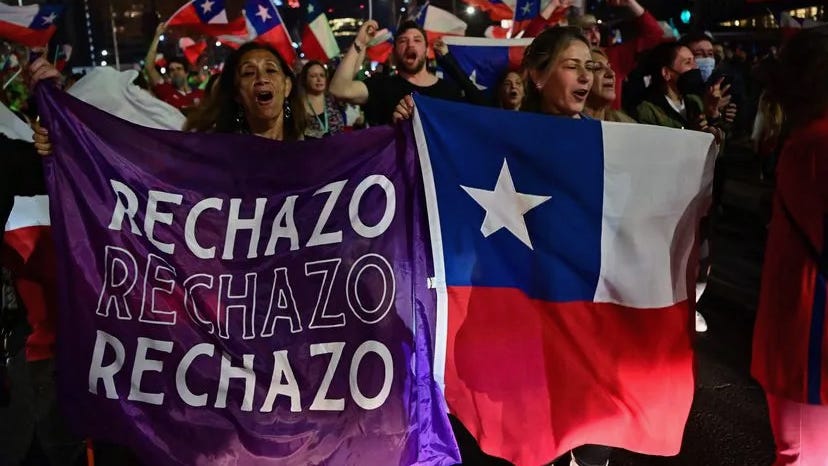Saving Chile
Magdalena Moncada explains why Chile rejected the world’s worst constitutional proposal
Magdalena Moncada served as chief of staff to José Antonio Kast’s 2021 presidential campaign on the Partido Republicano ticket. She writes from Santiago specially for Postliberal Order.
Fifty-two years after the Marxist Salvador Allende was elected president of Chile, the Chilean people decisively shut the door on a program of ideological radicalization that would have left them victim of one of the most radical constitutions in the world.
In the single largest electoral turnout in Chilean history comprising 85 percent of the Chilean people, Rechazo claimed 62 percent of the votes to reject the ultra-progressive constitution. Support for the constitution (Apruebo) garnered a meager 38 percent of the vote.
American readers can hardly imagine the insanity that has gripped my country in the last three years. Unreported in the media, unnoticed even by right-wing media, Chile has been wracked by violent terrorist attacks and an unflinching effort, supported by global media, to install a crippling, radical constitution that would have wrecked our country once and for all.
Let me tell you the story.
Chile was once the Latin American example. . . .
Chileans celebrate the decisive rejection of an ultra-progressive constitution on the night of September 4, 2022.




